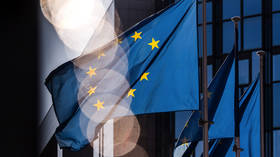No new EU Russia sanctions until 2025 – Polish state media

The European Commission is unlikely to present any proposals for a new sanctions package targeting Russia by the end of this year due to constant pushback from Hungary, Polskie Radio reported on Sunday, citing an EU official.
According to the state broadcaster's unnamed source, introducing new sanctions will not be possible under the current Hungarian presidency of the Council of the EU and Brussels is waiting for Warsaw to take over the Council’s leadership before it rolls out any new restrictive measures.
Hungary took over the six-month rotating presidency of the Council from Belgium on July 1. Poland’s presidency will begin on January 1, 2025.
In the meantime, “informal consultations” between the EU Commission and the member states on the 15th sanctions package have already started, the official said.
“It doesn't make sense to reveal the draft sanctions in this six months’ [presidency], because it’s another opportunity for Hungary to bargain or pressure, and the work on sanctions wouldn’t have progressed anyway,” the official told Polskie Radio’s Brussels correspondent.
The report indicated that sanctions consultations mainly concern agri-food and industrial products. The Commission is reportedly also looking into various options and implications for additional duties on goods from Russia and Belarus.
In its 14th package of restrictions adopted in June, the EU blacklisted 116 more Russian individuals and entities, as well as the shipping of Russian liquefied natural gas (LNG), and the country’s payments system.
The EU requires unanimity to adopt fresh sanctions and Hungary has long been at odds with the bloc over its approach to the Ukraine conflict and its sanctions policy towards Russia.
Hungarian Foreign Minister Peter Szijjarto warned last month that Budapest could block the sanctions if the union’s policies jeopardize the country’s energy security. Meanwhile, Poland has already signaled it wants to use its six-month leadership to get tougher on Russian fuel flowing to the continent.
Moscow has long criticized the measures targeting its economy and trade, while many experts in both Russia and the West have noted that unilateral sanctions do more harm to countries that introduce them than to Russia itself.














